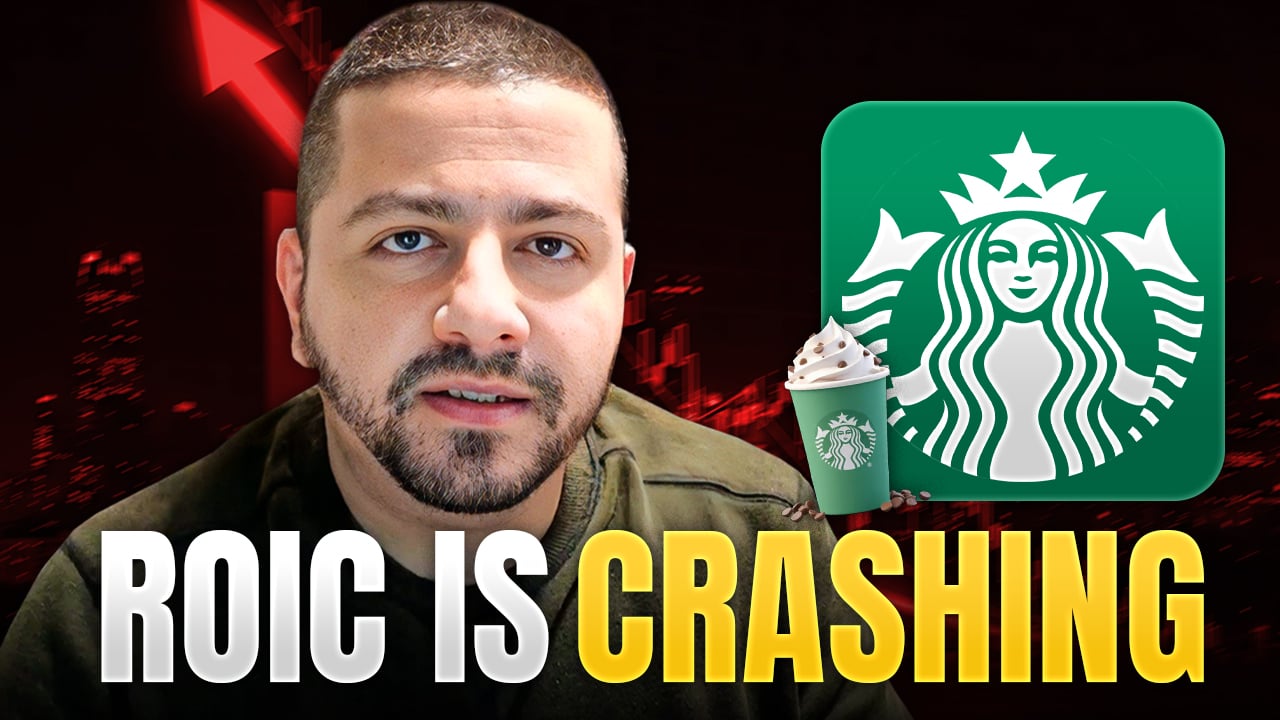Many millions of people have a preferred vendor of coffee, and with more than 27,000 locations worldwide, Starbucks (SBUX 0.23%) leads the pack. So everything it does has an impact.
In this segment from MarketFoolery, host Mac Greer and senior analysts Taylor Muckerman and Jason Moser discuss a pair of unrelated news items from the company. First, Starbucks will phase out disposable plastic straws in the next two years. Second, its former CEO asserted that the current slowdown in growth it's experiencing in China would be strictly short term. The guys weigh in on the opportunities for Starbucks in the world's most populous market, their expectations, and where they see the stock going.
A full transcript follows the video.
This video was recorded on July 9, 2018.
Mac Greer: Guys, let's move on to Starbucks. A lot of different news here. We have outgoing executive chairman Howard Schultz saying that the recent slowdown in China would be short-lived. Starbucks also announcing that it's getting rid of plastic straws by 2020.
Jason Moser: [claps] I applaud that plastic straws move! Thank you!
Greer: That's great! We were just talking before the show, Jason, you were saying you're not a straw guy, you don't use straws.
Moser: I'm not. I'm not a straw guy. I feel like that's one of the obvious things that you could either just change, or make it out of something compostable. It's just one of those simple little fixes, I don't know why we haven't done it yet. K-Cups, same thing. How hard is it to produce a fully compostable K-Cup? I don't know! That stuff is all magic to me anyway! But I have to believe someone out there can do it, right?
Greer: You have to believe. If we can put a man on the moon ... Taylor, what do you think of the Starbucks news?
Taylor Muckerman: I wonder if straws were even big back when we put the first man on the moon. When did the first straw come out? I don't know, McDonald's, probably --
Greer: This is a bit of a digression, but when I was a kid -- there are going to be two or three listeners who will know this reference -- there were these things called Krazy straws.
Moser: Oh, yeah!
Muckerman: Oh, sure.
Greer: That would be the one exception. I would say that they should eliminate all straws but have Krazy straws.
Moser: But here's the difference, the Krazy straw is reusable! You would use it, you'd put it in the dishwasher, you'd clean it, and it's Krazy all over again!
Greer: Oh, my God! It would last a thousand years!
Moser: Exactly! I'm OK with that because you can reuse it. It's that plastic, disposable, it kills me.
Greer: I would go to Starbucks more if they had Krazy straws. Right now, I'm a Dunkin' guy.
Moser: See, Dunkin' kills me because of the Styrofoam cups.
Greer: That's a great point.
Moser: I don't understand, why can't you make that switch?
Greer: You know what Dunkin' does? They take the time to put the cream and sugar in your coffee for you. I like that. I like that extra step. Life's hard enough.
Moser: Or are you lazy?
Greer: Absolutely! That's what I mean by the extra step. I'm lazy, do it for me. Taylor, back to Starbucks. What do you think about this whole China thing, Schultz saying, "Hey, you know the China story? Not too bad, don't worry." Do you buy that?
Muckerman: Just based on the fact that it's still pretty early days for Starbucks, and they are opening stores, it seems like, every 30 minutes in China ... I'm not too sure of the consumer preferences in China. I know tea is probably a big deal over there. I don't know about coffee. But coffee wasn't big and other countries that Starbucks moved into. In Europe, you think espresso is the big deal, but Starbucks is very successful serving their full cups of coffee over there, along with all their sugary beverages. I think there's a good future there.
For me personally, I do wonder, Starbucks might become that dividend stock that you hold on to. I don't know if it's the same growth story, or even close to what we've seen over the last five to ten years, regardless of how China pans out. Even if it hits all the marks. I still think it's not going to be that stock that you see those life-changing gains anymore from.
Moser: Yeah, I tend to agree with that. I think the local risk is in play here, at least domestically. Growing that store base here in the U.S., it seems like we're pretty saturated at this point. It also does seem like mom-and-pop coffee shops are making a little bit of a comeback.
Muckerman: Yeah, it's almost like the craft brew industry here in the U.S., with all these mom-and-pop coffee shops.
Moser: That's not going to have a tremendous impact on their business, but it certainly brings into question the growth domestically. The thesis for the growth story in Starbucks over the past few years has been China. If you look at what Schultz says, I quote, he says, "I will say unequivocally that anyone who is betting against Starbucks in China is dead wrong."
Greer: Fighting words!
Moser: Yeah. He's very certain. I will say this, I don't think there's a CEO out there, at least of an American multinational company, that has done more research into the Chinese market than Howard Schultz has. I think that a lot of people that might get out there and criticize him on that statement don't know anywhere close to what he knows about the China market.
Greer: We should add that Schultz is leaving. Does that concern you?
Moser: No, not really. I think, at the end of the day, he's still going to be there to help, whether it's a formal or an informal way of making sure that Starbucks is doing well. I think a lot of what's going on right now, is unfolding, is stuff that he had already put into work. I think he got that ball rolling, helped get that ball rolling, some time ago. Kevin Johnson understands a lot about the China market as well because of his relationship with Howard Schultz. It's all to say that I don't think Schultz makes or breaks this company, but I do take his opinion seriously when he talks about things like this. A lot of what's going on right now, this strategy was already put into action before he decided to sever ties.
The fact of the matter is, if you're talking about a company like Starbucks partnering up with Alibaba and Jack Ma, Jack Ma's goal with Alibaba is to make China more of an importer, to bring more American goods into China. You could open up a tremendous distribution network there on the tea and coffee side with the Starbucks brand, the Teavana brand. A lot of opportunities there.
It's all to say, great businesses go through tough times. I think Starbucks is going through a tough time. Even if it's not that robust growth story that some were hoping for, I think it's going to be a pretty reliable investment. Certainly, the dividend is going to be there. I think it'll continue to grow. I could think of many reasons to hang on to these shares.






